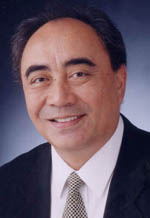CMEx looks set for high level attendance
 The sixth Caribbean Media Exchange Conference on Sustainable Tourism (CMEx VI), opens in Rodney Bay Village on Thursday, featuring a high level segment examining the impact of travel and tourism on Caribbean jobs and the economy.
The sixth Caribbean Media Exchange Conference on Sustainable Tourism (CMEx VI), opens in Rodney Bay Village on Thursday, featuring a high level segment examining the impact of travel and tourism on Caribbean jobs and the economy.
The conference will hear an address by Director-General and CEO of the Caribbean Hotel Association, Alec Sanguinetti and Executive Vice President of the World Travel and Tourism Council (WTTC), Richard Miller, who will both bury the myth that travel and tourism only benefits a “few fat cats”.
According to WTTC president Jean-Claude Baumgarten, who addressed last week’s Caribbean Hotel Industry Conference in Puerto Rico, “travel and tourism is without question the most important export sector in the region. It helps to diversify the Caribbean economy, stimulate entrepreneurship, catalyse investment, create sustainable jobs and helps social development in local communities. However, the impact of the industry is generally not understood by public officials, the industry itself, or the communities where it takes place.”
Also addressing the June 24-28 St. Lucia conference will be chairman of Air Jamaica and Sandals Resorts, Gordon “Butch” Stewart to report on how to unleash the potential of the industry, while delegates are expected to hear from St. Lucian Prime Minister, Dr. Kenny Anthony.
Lelei LeLaulu, president of Counterpart International - producers of the biannual conference, said he was pleased to see senior travel and tourism officials making it a priority to attend the regional exchange, which the non-profit development agency launched partly to improve the quality of media coverage of sustainable tourism in the Caribbean. The meeting also seeks to increase the input of the media in the design of sustainable tourism policies, and highlight the necessity of tourism to the economies of small island states.
The upcoming conference builds on the past five CMEx events, the most recent being the Barbados-based December 4-8, 2003 meet at Almond Beach Resort, in which the media practitioners, tourism planners, hoteliers, non-governmental organizations and government officials were united in their bid to keep the region’s tourism product afloat.
ADVERTISEMENT
Diverse issues placed on the table during symposium generated heated dialogue, as participants sought to unearth the major challenges and threats facing the industry and to propose viable solutions. Despite some divide on contentious issues, participants were single-minded in the view that, tourism remained, in some instances, the only means to stimulate regional growth and as a consequence should be placed on the top of the region’s political agenda. In keeping with plans for the proposed CARICOM Single Market and Economy, tourism leaders also made a call for the Caribbean to be marketed as a single destination with a single image.
The impact of technology on the trade was also among the key topics discussed, and the need to utilize available technology in tourism planning was underscored. The need for collaboration within the sector to discourage increasing competition was also highlighted.
While the industry was given high marks for progress made in recent years, practitioners were warned of the dark cloud of HIV/AIDS which is looming over the sector. Participants learnt of sexual exploitation against children and increasing HIV/AIDS risks among sex and industry workers. Calls were made for educational campaigns and laws to address this growing threat.
CMEx VI will build on previous strides to consider tourism’s economic impact; the potential for unique tourism linkages; the use of renewable energy; issues of governance; Caribbean investment; tourism partnerships and the future of tourism. The impact of HIV/AIDS on sustainable tourism will again be on the table and the future of tourism will, for the first time at CMEx, be seen through the eyes of the youth.
“CMEx, as underscored recently by the WTTC, is playing a key role in raising awareness. As the conference continues to evolve in less than three years, we hope to effect greater change when combined with ongoing efforts by other tourism entities in both the public and private sector,” said LeLaulu.
——-

